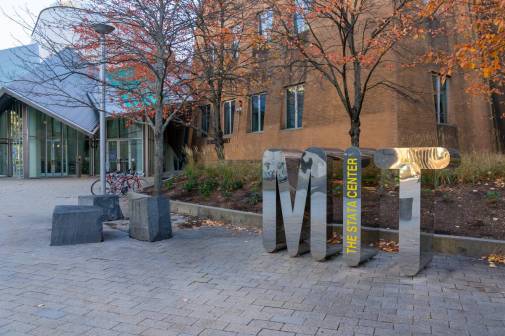San Antonio schools CTO wants more than ‘cute’ devices

More school districts are moving to the cloud, and Mateen Diop thinks it’s for good reason.
Diop, the executive director of technology, integration and management information systems for the San Antonio Independent School District in Texas, talked to EdScoop about transferring systems to Microsoft Office 365 this year.
A 16-year veteran of the public school system in San Antonio, Diop believes that school leaders must understand the role of technology in the classroom and how it can improve academic outcomes.
Diop recently talked with EdScoop about the technology programs and projects he is heading up in his school district. Below is an edited and condensed Q&A.
EdScoop: What are your district’s top technology priorities this year?
Mateen Diop: We are moving more systems to cloud platforms. The biggest reason for going to the cloud is cost. It costs less money to move your hardware into the cloud. When you move those physical devices off your premises and into the cloud environment, it also addresses security issues more.
We’re moving to [cloud-based Microsoft] Office 365 this year and we’ve slowly rolled it out. Last year we just moved a few departments, but now we’re moving it out to all of our campuses. When the school year begins in late August, every employee should be up and running in the cloud.
We are also bridging the gap between curriculum and technology. When teachers learn new ways of teaching, technology is not something in addition to what they do. It’s something that’s part of what they do. I’m not into just having cute devices to give to the classroom; that’s not my thing. My thing is, we can have the devices but how are they going to change academic outcomes?
ES: How did you come into your role?
MD: In my previous role, I served as an advisor to the superintendant. Some internal changes were made and I already had a tech background, so this job was a natural fit. My master’s and doctoral degrees are in instructional technology. Plus, as a principle, I always wanted to use technology in my classroom. I always taught teachers how to do things with technology, even though that wasn’t my formal role.
ES: What is the most exciting or interesting project your district is currently working on?
MD: We’ve invested heavily in Smart technology. We [are rolling out] interactive flat panels with embedded PCs. That’s really the next level. With the old Smart Board, you had the board, the projector, the laptop, wires – all of those things which were a cool learning tool, but took up a lot of real estate. The new interactive, flat panel is mounted to the wall. Your software — everything you need — is embedded inside the flat panel.
We’ve purchased 214 of those boards to put in every middle school science and social studies classroom. To me, [the flat panel] is one of the most integral tools for student engagement because now the students can really take charge of their learning when the teacher knows now to use the board. My job is to teach the teachers how to use the board in the classroom. We’ve already started installation. We should be finished in the next couple weeks. The next phase of that will be training. The teachers haven’t reported back to work yet, but when they do, we’ll have training for them. My department will be supporting them in the classroom all year long.
ES: How is the role of a school technology specialist or leader changing?
MD: Tech leaders are becoming more visionary and less “technical.” To me, the [leader] has to be someone at the executive level who is really pushing the vision of technology in the classroom every day, not just a technician. The [leader] has to plan for five or 10 years out. What are we going to need bandwidth-wise 10 years from now? What are we going to need device-wise 10 years from now? My daughter is 9 years old, and the iPhone 6 is the only device she knows. When she gets to high school, what device will she have then? It’s about moving from a technology-only mindset to a more global mindset.
ES: How big is your budget for technology and infrastructure?
MD: Our budget has increased due to the cost of equipment increasing. Fortunately, we have a new superintendant who understands the role and importance of technology in the classroom, so he really budgets heavily in spending money on technology; that’s how we’re able to do the things we’re doing.
ES: What do you think the job will look like in 10 years?
MD: You will have to be more forward thinking. You have to understand instruction, you have to understand hardware and have to understand how those systems work together to move a school district forward.




